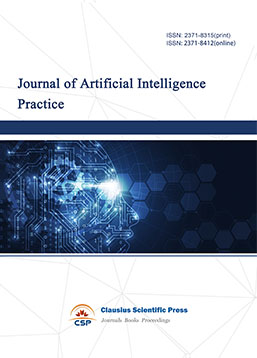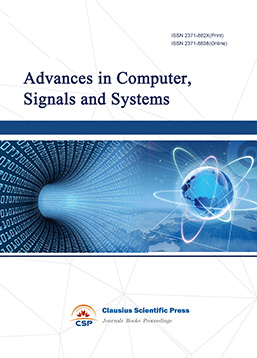Research on Electric Vehicle Routing Problem Based on Reinforcement Learning
DOI: 10.23977/autml.2023.040106 | Downloads: 46 | Views: 2597
Author(s)
Shaomin Zhang 1, Kunpeng Wang 1, Baoyi Wang 1
Affiliation(s)
1 School of Control and Computer Engineering, North China Electric Power University, Baoding, Hebei, 071003, China
Corresponding Author
Shaomin ZhangABSTRACT
As an emerging means of transportation, electric vehicles have been regarded as having broad application prospects due to their advantages in energy conservation, emission reduction and carbon neutrality. However, due to the limitation of cruise range and the inconvenience of charging process, the promotion of electric vehicles is not smooth. So we introduces the application of reinforcement learning in this field and proposes a deep reinforcement learning scheme based on D3QN (Dueling Double DQN) to solve it. Finally, we compare D3QN algorithm with the current general DQN and DDQN algorithms in terms of success rate and reward value through comparative experiments.
KEYWORDS
Electric vehicle, Deep learning, Reinforcement learning, Path planningCITE THIS PAPER
Shaomin Zhang, Kunpeng Wang, Baoyi Wang, Research on Electric Vehicle Routing Problem Based on Reinforcement Learning. Automation and Machine Learning (2023) Vol. 4: 41-46. DOI: http://dx.doi.org/10.23977/autml.2023.040106.
REFERENCES
[1] G. B. Dantzig and J. H. Ramser. The Truck Dispatching Problem [J]. Management Science, 1959, 6(1): 80-91.
[2] C. Zhang, Y. Liu, F. Wu, B. Tang and W. Fan, "Effective Charging Planning Based on Deep Reinforcement Learning for Electric Vehicles," in IEEE Transactions on Intelligent Transportation Systems, vol. 22, no. 1, pp. 542-554, Jan. 2021, doi: 10.1109/TITS. 2020.3002271.
[3] Rafael Basso, Balázs Kulcsár, Ivan Sanchez-Diaz, Xiaobo Qu, Dynamic stochastic electric vehicle routing with safe reinforcement learning, Transportation Research Part E: Logistics and Transportation Review, Volume 157, 2022, 102496, ISSN 1366-5545.
[4] Q. Zhang, K. Wu and Y. Shi, "Route Planning and Power Management for PHEVs With Reinforcement Learning," in IEEE Transactions on Vehicular Technology, vol. 69, no. 5, pp. 4751-4762, May 2020, doi: 10.1109/TVT. 2020.2979623.
[5] M. Ye, C. Tianqing and F. Wenhui, "A single-task and multi-decision evolutionary game model based on multi-agent reinforcement learning," in Journal of Systems Engineering and Electronics, vol. 32, no. 3, pp. 642-657, June 2021, doi: 10.23919/JSEE. 2021.000055.
[6] Y. Huang, G. Wei and Y. Wang, "V-D D3QN: the Variant of Double Deep Q-Learning Network with Dueling Architecture," 2018 37th Chinese Control Conference (CCC), 2018, pp. 9130-9135, doi: 10.23919/ChiCC. 2018.8483478.
[7] Queck B., Lau H. C. (2020). A Genetic Algorithm to Minimise the Number of Vehicles in the Electric Vehicle Routing Problem. In: Lalla-Ruiz, E., Mes, M., Voß, S. (eds) Computational Logistics. ICCL 2020. Lecture Notes in Computer Science, vol 12433. Springer, Cham.
[8] Ben Abbes S., Rejeb L., Baati L.: Route planning for electric vehicles. IET Intell. Transp. Syst. 16, 875– 889 (2022).
[9] C. Zhang, Y. Liu, F. Wu, B. Tang and W. Fan, "Effective Charging Planning Based on Deep Reinforcement Learning for Electric Vehicles," in IEEE Transactions on Intelligent Transportation Systems, vol. 22, no. 1, pp. 542-554, Jan. 2021, doi: 10.1109/TITS. 2020.3002271.
[10] R. Szczepanski, T. Tarczewski and K. Erwinski, "Energy Efficient Local Path Planning Algorithm Based on Predictive Artificial Potential Field," in IEEE Access, vol. 10, pp. 39729-39742, 2022, doi: 10. 1109/ ACCESS. 2022. 3166632.
| Downloads: | 4734 |
|---|---|
| Visits: | 233156 |
Sponsors, Associates, and Links
-
Power Systems Computation

-
Internet of Things (IoT) and Engineering Applications

-
Computing, Performance and Communication Systems

-
Journal of Artificial Intelligence Practice

-
Advances in Computer, Signals and Systems

-
Journal of Network Computing and Applications

-
Journal of Web Systems and Applications

-
Journal of Electrotechnology, Electrical Engineering and Management

-
Journal of Wireless Sensors and Sensor Networks

-
Journal of Image Processing Theory and Applications

-
Mobile Computing and Networking

-
Vehicle Power and Propulsion

-
Frontiers in Computer Vision and Pattern Recognition

-
Knowledge Discovery and Data Mining Letters

-
Big Data Analysis and Cloud Computing

-
Electrical Insulation and Dielectrics

-
Crypto and Information Security

-
Journal of Neural Information Processing

-
Collaborative and Social Computing

-
International Journal of Network and Communication Technology

-
File and Storage Technologies

-
Frontiers in Genetic and Evolutionary Computation

-
Optical Network Design and Modeling

-
Journal of Virtual Reality and Artificial Intelligence

-
Natural Language Processing and Speech Recognition

-
Journal of High-Voltage

-
Programming Languages and Operating Systems

-
Visual Communications and Image Processing

-
Journal of Systems Analysis and Integration

-
Knowledge Representation and Automated Reasoning

-
Review of Information Display Techniques

-
Data and Knowledge Engineering

-
Journal of Database Systems

-
Journal of Cluster and Grid Computing

-
Cloud and Service-Oriented Computing

-
Journal of Networking, Architecture and Storage

-
Journal of Software Engineering and Metrics

-
Visualization Techniques

-
Journal of Parallel and Distributed Processing

-
Journal of Modeling, Analysis and Simulation

-
Journal of Privacy, Trust and Security

-
Journal of Cognitive Informatics and Cognitive Computing

-
Lecture Notes on Wireless Networks and Communications

-
International Journal of Computer and Communications Security

-
Journal of Multimedia Techniques

-
Computational Linguistics Letters

-
Journal of Computer Architecture and Design

-
Journal of Ubiquitous and Future Networks


 Download as PDF
Download as PDF